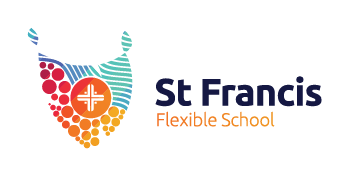Each young person is in a core class. Each class is staffed by a class partnership. This partnership is made up of a teacher, youth worker and class leader.
To best meet the needs of the young people we put classes together based on the young person’s preferred styles of participation or support needs. Our aim is to place each young person in a classroom environment that best suits them.
We know that every young person learns differently, we offer diverse types of learning opportunities:
Collaborative Goal Setting (CGS): Collaborative Goal Setting is how we set goals for each young person’s learning. This means making plans that fit each young person’s needs and strengths and learning pace. Young people, teachers, youth workers and parents/guardians work together to set these goals. CGS’s focus on helping students do better in school and support their wellbeing, while keeping track of their progress. These CGS’s are held twice a year and are the basis of our school Reports for each young person.
Personal Projects: Young people can work on projects that interest them, helping them build important skills.
Negotiations: If a young person doesn’t want to join a certain activity, they can talk with the class partnership to find another option.
Out and Abouts: These are trips outside of school that help young people learn and grow in new ways. Each Out and About will have a specific learning focus.
Specialist Lessons: Young people have an opportunity to participate with their class, individually and small groups in Music, Art, Drama and PE.
Electives: Young people have an opportunity to sign up weekly to a variety of electives. These change each term, but include opportunities like mountain bike riding, surfing, bushwalking, boxfit, gym, chess and guitar group.
Careers and Pathways: A variety of work ready programs and career planning with specialist staff are offered.
Holiday program: This program is offered in each holiday period, it often includes creative projects, Out and Abouts, and social events. This helps young people stay connected with schools and supports them to continue to develop skills outside the regular school year.
